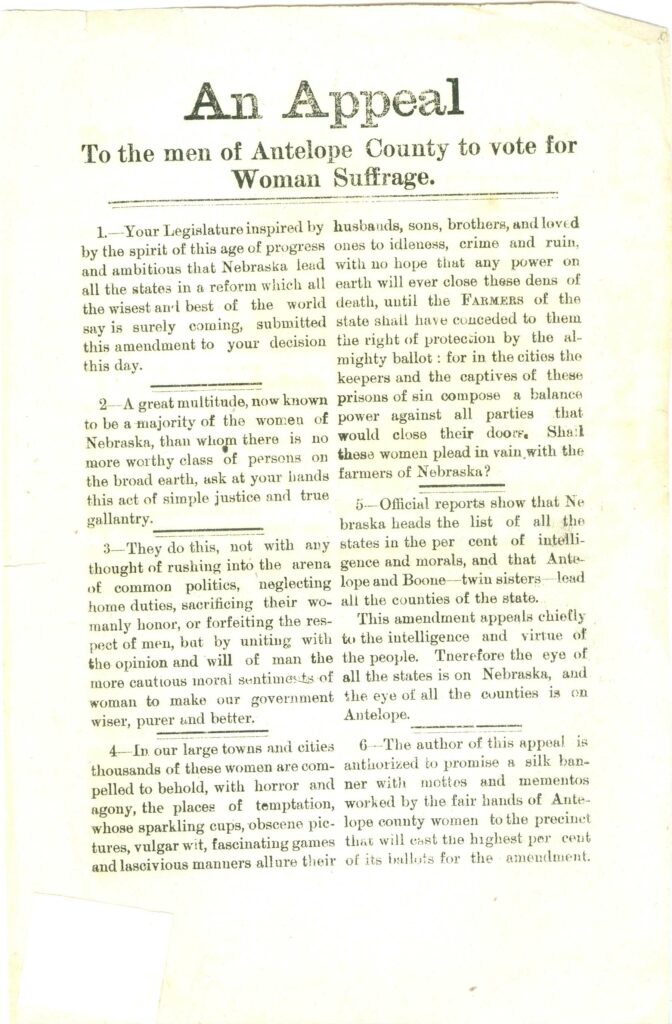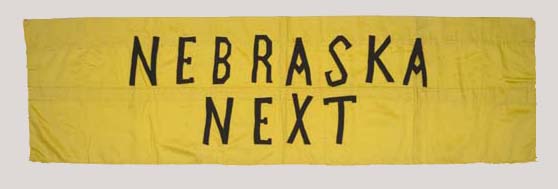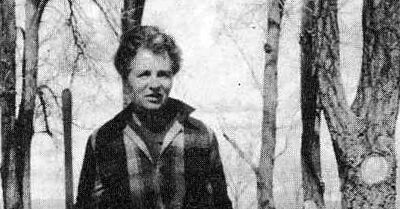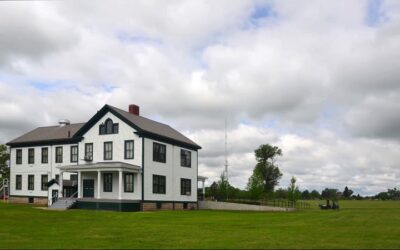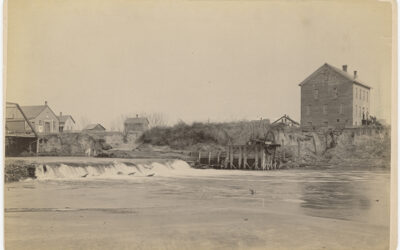The photograph and artifacts featured above are just a sample of the items relating to the movement to ensure a woman’s right to vote in History Nebraska’s collection. More information about women’s suffrage can be found in our other online stories or in our collections.
The movement to enfranchise Nebraska women started as early as 1855 when suffragist Amelia Bloomer spoke before an audience in Omaha. Things heated up after Nebraska ratified the Fourteenth Amendment to the U.S. Constitution in 1867. That year, Susan B. Anthony and Elizabeth Cady Stanton traveled to Omaha to further the cause of woman suffrage, thinking Nebraska was poised to adopt legislation to allow women the vote. It was not to be, however, and woman’s suffrage was defeated by Nebraska’s voters at an 1871 constitutional convention.
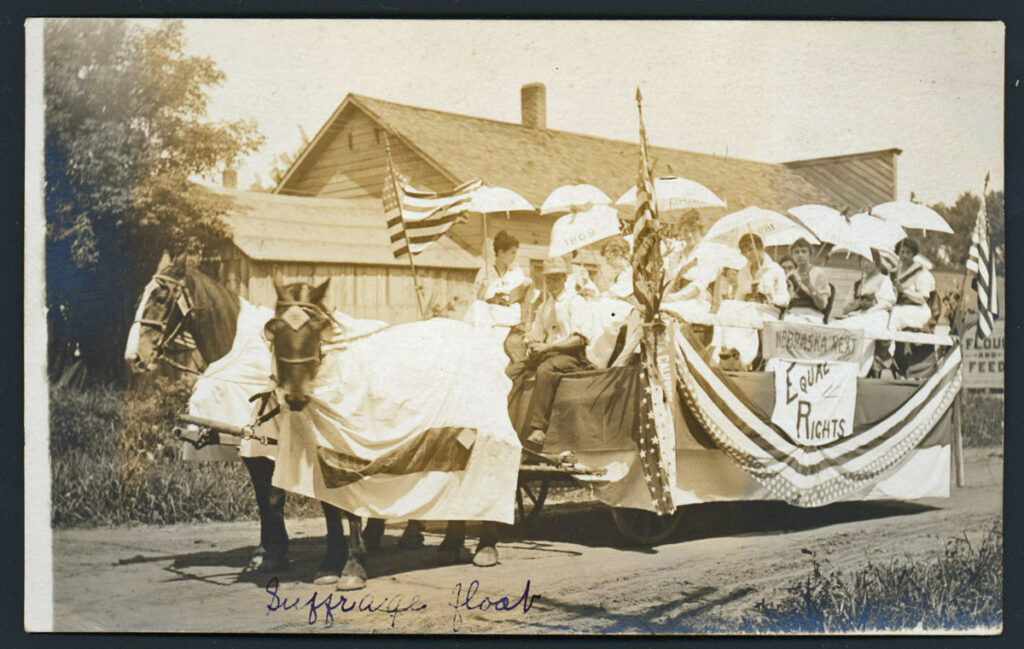
Picture of a suffrage float in Blair, Nebraska in July 1914. Notice the “Nebraska Next” banner on the sign that is the same as the one pictured above.
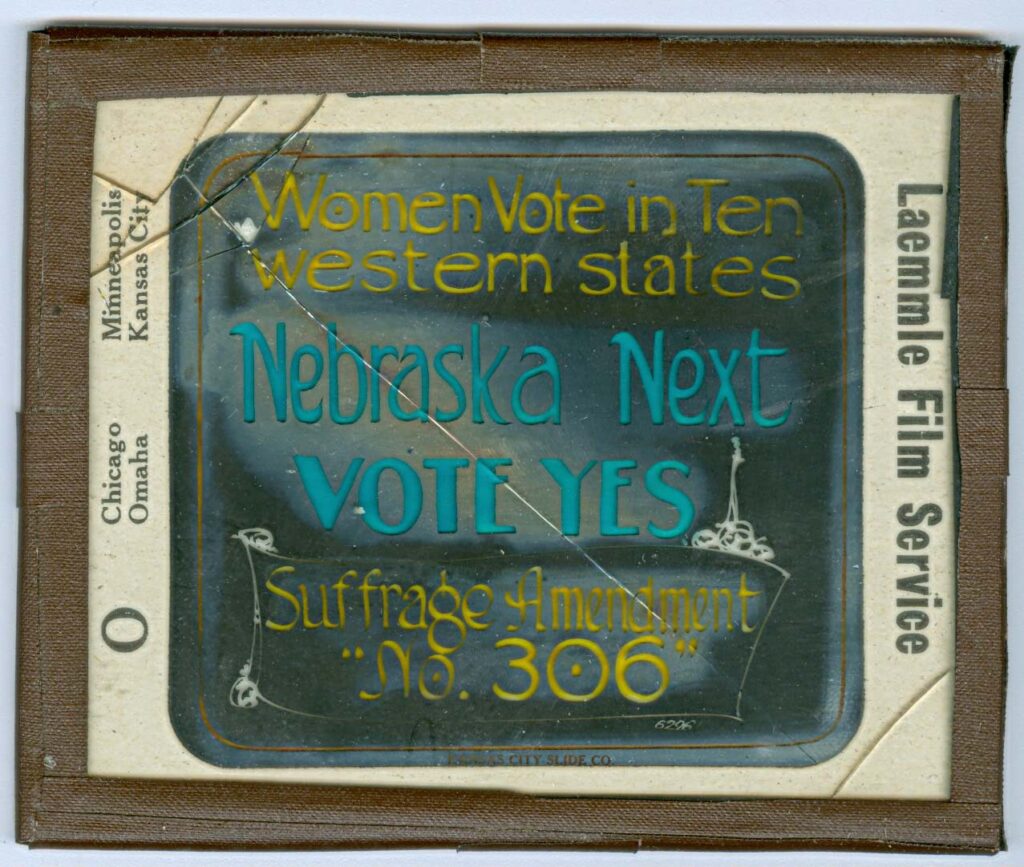
This glass transparency would have been used with a lantern-slide projector prior to the 1914 general election.
In 1881, several local groups formed the statewide Nebraska Woman’s Suffrage Association and that same year, during the regular legislative session, a bill was introduced to submit a resolution to Nebraska voters to strike the word “male” from the suffrage article of the Nebraska constitution of 1875 and replace it with the word person. The bill passed and was signed in February 1881 and the issue would be decided in November 1882.
The campaign for women’s suffrage in Nebraska was on and by September 1882 there were more than 175 woman suffrage associations in the state. To further promote the cause, both the American Woman Suffrage Association and the National Woman Suffrage Association had their annual meetings in Omaha. However, despite the best efforts of all these groups, Nebraska voters rejected women’s suffrage once again.
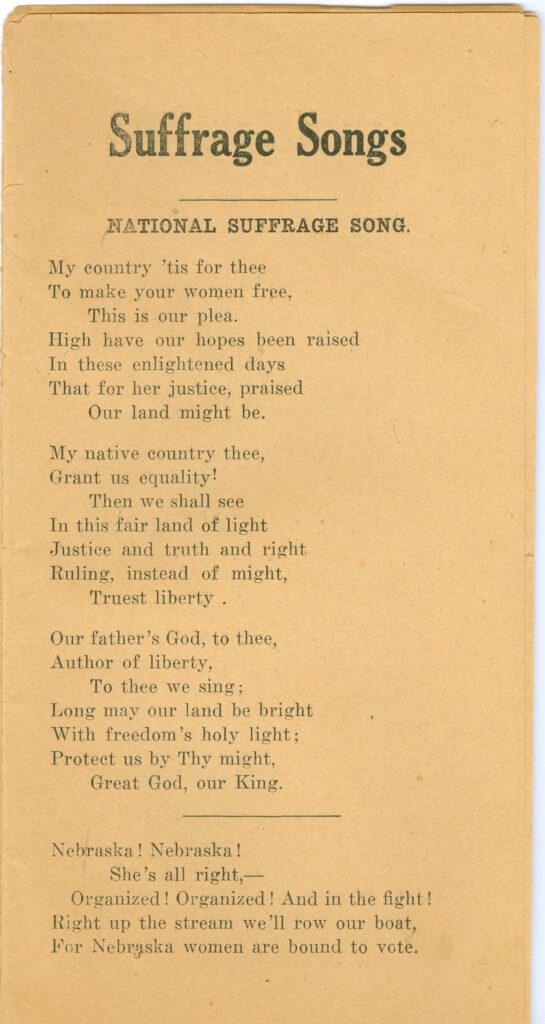
Front cover of a four-page booklet. Several songs have been adapted to the Nebraska cause as is visible on the bottom of this image.
Although the cause suffered another defeat in the 1914 general election, a big step forward occurred in 1917 when the Nebraska Legislature passed a limited suffrage act giving women the right to vote in municipal elections and for presidential electors. The success was muted, however, by opposition forces who filed a referendum petition to allow the voters to overturn the bill. The petition was challenged by woman suffrage supporters and the issue was bogged down in the courts for two years. The referendum petition was eventually found to be fraudulent, but the point was practically moot as the Nebraska Legislature, in an August 1919 special session, unanimously ratified the Nineteenth Amendment to the U.S. Constitution. A year later women were finally allowed to vote in all elections nationwide.

